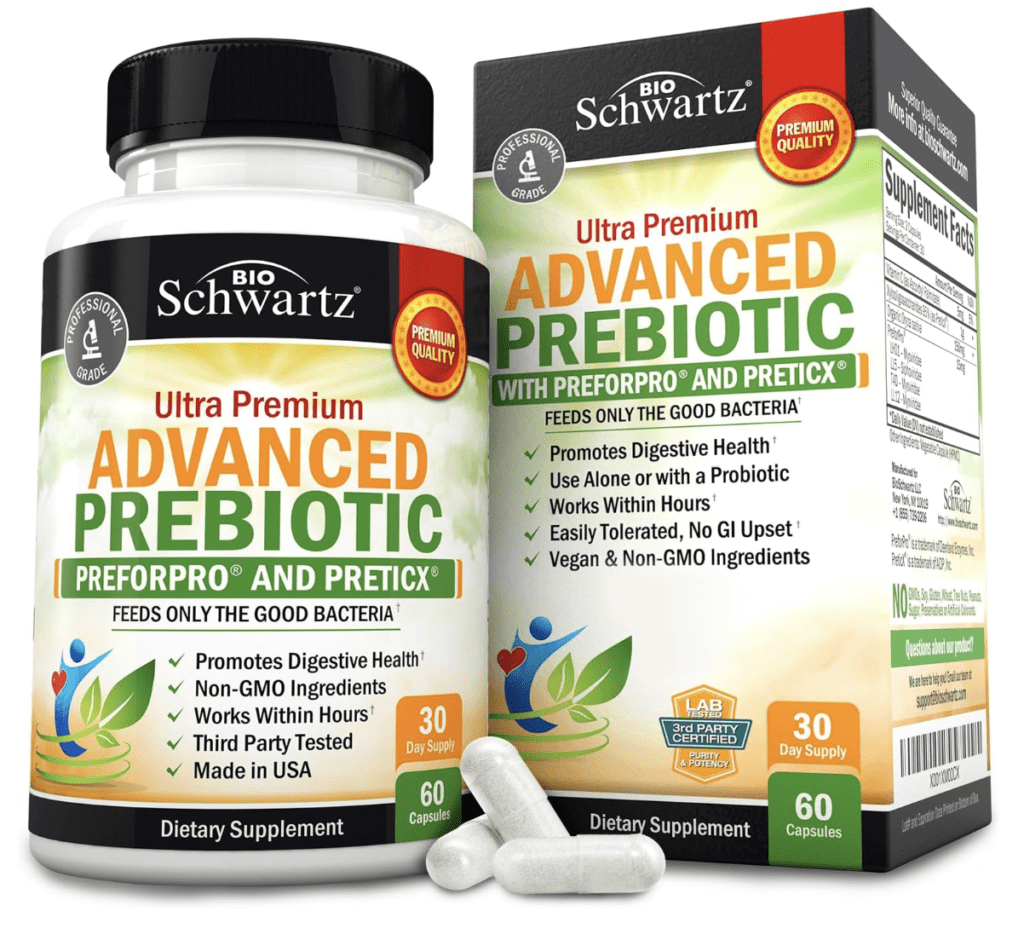What are Prebiotics?
Prebiotics, a form of dietary fiber, serve as nourishment for the beneficial bacteria in your gut. These non-digestible components of food travel through the digestive system, becoming a source of sustenance for bacteria and other microorganisms.
While all fiber is not prebiotic, prebiotics can be found in numerous fruits and vegetables, particularly those containing complex carbohydrates like fiber and resistant starch. Since your body cannot digest these carbohydrates, they pass through the digestive system, providing nourishment for gut flora.
The difference between prebiotics and probiotics
While prebiotics and probiotics both play crucial roles in maintaining a healthy gut, they serve different functions. Probiotics are live bacteria and yeasts beneficial for your gut. They are naturally found in your body but are also available in some foods and supplements. These “good” bacteria assist in maintaining the balance of gut flora, supporting digestion, and enhancing immune function.
On the other hand, prebiotics are types of dietary fiber that feed the beneficial bacteria in your gut. They are not living organisms but instead serve as food for the probiotics. Prebiotics withstand the digestive process to reach the gut, where they fuel probiotics, helping them to thrive and multiply.
In essence, probiotics are the beneficial bacteria, and prebiotics are the food that nourishes them. An optimal gut health strategy often involves consuming a combination of both to support a diverse and robust gut microbiome.
Foods rich in prebiotics (Table)
| Category | Food |
|---|---|
| Vegetables |
|
| Fruits |
|
| Grains |
|
| Legumes |
|
| Nuts and Seeds |
|
| Miscellaneous |
|
Prebiotic Supplements

Our choice for prebiotics: BioSchwartz Advanced Prebiotic (PREFORPRO AND PRETICX) Price: $17.97 ($0.30 / Count)
While it's best to obtain prebiotics from natural food sources, there may be scenarios where individuals find it difficult to meet their prebiotic needs solely through diet. Enter: Prebiotic supplements, a handy alternative that ensures your gut flora gets the essential nourishment it needs.
These supplements, available in powder, capsule, or tablet forms, contain a concentrated dose of dietary fiber and can be a beneficial addition to your wellness regimen.
Keep in mind that not all prebiotic supplements are created equal. They vary in terms of the types of fiber they contain, dosage, and additional ingredients.
Some popular prebiotic fibers used in supplements include Inulin, Fructo-oligosaccharides (FOS), and Galacto-oligosaccharides (GOS). It's important to choose supplements that contain clinically validated strains of prebiotic fibers, are free from unwanted additives, and come from reputable brands. Always consult with a healthcare provider before starting any supplement regimen to ensure it suits your individual health needs and aligns with your overall health goals. Furthermore, remember that supplements are meant to complement, not replace, a diverse and balanced diet. Finally, start with a low dose and gradually increase, allowing your gut to adjust to the increased fiber intake.